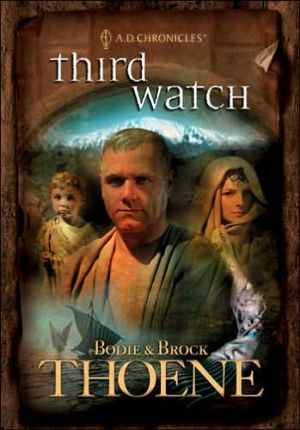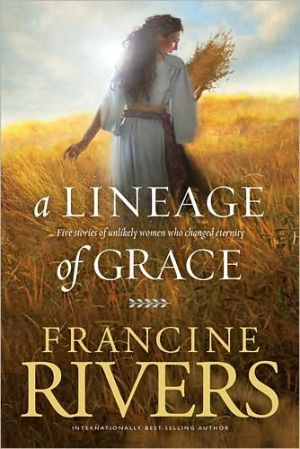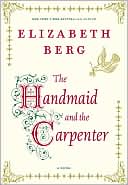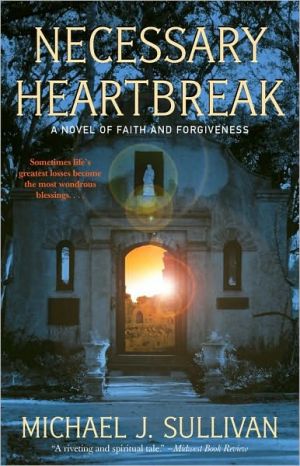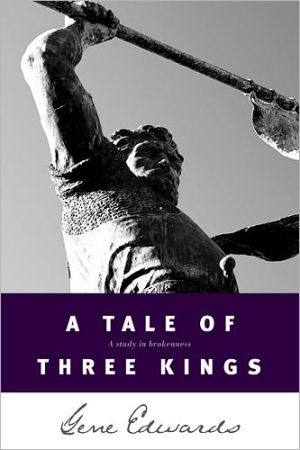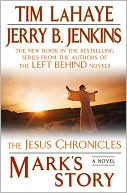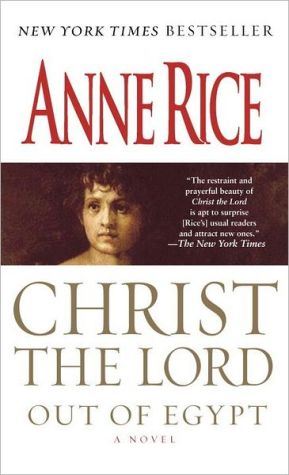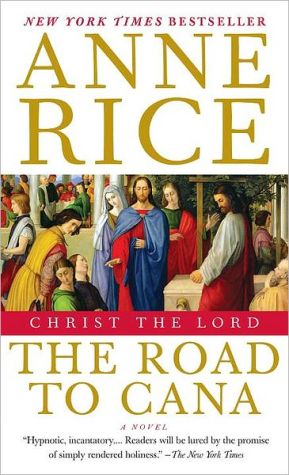Third Watch: A.D. Chronicles
Journey back to first-century Jerusalem, a dark and hopeless time, when citizens are searching for their promised Messiah to return. Meet new characters Zahav, a Jewish woman who is very strong in her faith, and Alexander, a Greek with a past. Can their forbidden love endure the trials that face them? Will Susanna and Manaen's love be able to overcome bitterness and overwhelming odds? After seeing all that Yeshua has done for them, will the people believe he is the Messiah? What they choose...
Search in google:
A.D. Chronicles ®“Who do men say that I am?”Is Yeshua the Messiah?Then why won’t Yeshua prove Himself?And why does He leave His people to suffer?From the wilderness of Sinai in the south to Mount Hermon in the north, the question of Yeshua of Nazareth’s identity resounds across the ancient land of Israel. Even evil waits to hear the answer. It is in the very air, the storm, and the sea.Zahav, the lonely, unmarried daughter of an old rabbi, waits for the promised Messiah . . . waits for love. Her heart is drawn toward Alexander and his young son, who is ravaged by evil forces. But can their forbidden love endure the trials that will face them?Susanna and Manaen struggle as they begin their life together. Bitter over an evil act of violence that left him blind, Manaen cannot accept a life of darkness. Will their relationship survive the overwhelming odds?Can the truth about Yeshua defeat the evil that lurks in the land?Also included: Study questions suitable for individual use or group discussion.
Third Watch\ \ By Bodie Thoene Brock Thoene \ Tyndale House Publishers, Inc.\ Copyright © 2004 Bodie and Brock Thoene\ All right reserved.\ ISBN: 0-8423-7512-0 \ \ \ Chapter One\ It was a miracle she was alive. Everyone said so. A miracle. Ordained by Yahweh. The life of Zahav was important to the Almighty. She was born to accomplish something. \ Every Jew who worshipped in the synagogue of Caesarea Philippi knew the details of her brother's death and of the murder of her righteous grandfather at the hand of Herod the Great thirty years before.\ Children at the Torah school sat on the edge of their seats when her story was told. It was like this:\ Zahav's mother, eight months pregnant, hiding down a well with her tiny son as Herod's soldiers searched Bethlehem and slaughtered every male child under two years old.\ The whimper from the child as the captain drew water to wash the blood of the innocents from his hands, his face, his sword.\ Discovery!\ The fight as Zahav's mother resisted. A blow to her face, which knocked her down! The blade of the Samaritan plunging into the little boy's heart!\ The heart of the mother, breaking.\ Breaking.\ Yes. It was quite a story. And a true one.\ So Zahav had been born in a cave as her mother and father fled Judea, carrying nothing but a single Torah scroll, wrapped in clothes that had belonged to their slaughtered son.\ And marring the newborn girl's face was a crimson birthmark in the shape of a hand. It was as though the brute who had struck Zahav's mother had somehow slapped the infant within her. The wound of Herodian brutality, and thus the memory of that terrible night was imprinted indelibly onto the face of little Zahav.\ Her mother, looking at the disfigured cheek, had cried out. She insisted the baby be named Zarev, like the melted wax of a candle, because all light had melted from her soul.\ But the baby's grieving father took her from the arms of her mother. He wrapped the child in his prayer shawl.\ And then a miracle happened. Tiny fingers grasped the fringes of his tallith, pulling the knots and single azure strand of the fringe up to her mouth as if she were kissing the ineffable Name of the One God after a prayer!\ Yes. A miracle. Who could deny it?\ For a baby born only minutes before to kiss the tzitzit of her father's prayer shawl where the letters of Yahweh's name are woven! Yes. A wonder! Who had heard of such a thing?\ It was a sign of hope sent from heaven by way of this precious one. She carried with her the promise to the grieving parents that God was still God. The infant sons of Bethlehem who had perished at the command of Herod now lived in heaven with the Lord. The infant's soul had embraced her brother when he arrived, and he had whispered a secret to her as she departed. Why else would a baby know the command of the Lord about the fringes and fulfill the command even in such horrible circumstances?\ Thus encouraged, the father had cradled his daughter and emerged from the cavern. The night sky was frosted with stars from horizon to horizon. He kissed the newborn's marred face and lifted her high before the throne of El Olam!\ "Blessed are you, O Adonai, King of the Universe, who has sanctified us by your commandments and has commanded us to wrap ourselves in fringed garments. My daughter shall not be called Zarev! She is Zahav, 'Shimmering like Gold,' just as the golden promise in your Torah shimmers like a bright star to guide us!"\ After some days, mother and father and newborn daughter fled north from Judea to the foot of snowcapped Mount Hermon. They came to the village of Paneas, which later was called Caesarea Philippi.\ There was a derelict synagogue in the village. It had been built 170 years earlier by Jewish refugees before the Maccabee rebellion. The synagogue had no Torah scroll. It had no rabbi. Only ten old men survived in the congregation. The city was infested with apostate Jews who had fallen into pagan worship. So many had turned from the Lord. Barely enough faithful Jews remained for a single minyan to gather and pray. These ten had been praying for a miracle. Praying for a rabbi to come. Praying for a rabbi with a Torah scroll.\ And the miracle came....\ * * *\ It was just past midsummer in the seventeenth year of Emperor Tiberius. Tonight Mount Hermon loomed up against the backdrop of starry skies. The scent of pine wafted down from verdant slopes.\ Zahav, spinster daughter of Eliyahu, Chief Rabbi of Caesarea Philippi, sat on her window ledge and inhaled deeply. It was hot. But the breeze from the mountain was nice.\ This was Zahav's favorite time of day. It was, in fact, the only hour she could have a single uninterrupted thought.\ Shops below her second-story balcony were shuttered. The rattle of carts and the lowing of livestock passing in the street had ceased. Dickering merchants, squabbling children, harried mothers, and the endless discussions among talmidim about the meanings of Torah portions had fallen silent at suppertime.\ Thirty years had passed since Rabbi Eliyahu had arrived in Paneas with one Torah scroll, a wife, and a baby. The village had blossomed into a city. Rabbi Eliyahu and his wife had four other children after Zahav. They had dwelt in exile, but in peace.\ The tetrarch Philip was a son of old Herod. But Philip was, in temperament, more like a docile ox than a rampaging bull.\ Philip had survived the familial slaughters of his father by laying low and rarely offering an opinion more controversial than which wine tasted best with mutton or fish. Philip ruled his subjects with the same benign neglect that he cherished. Taxes were negligible. The trade route from Damascus to the sea brought commerce and visitors as never before.\ Now the synagogue of Caesarea Philippi flourished in the midst of the pagan north country. The Jewish Quarter of the city had a population of three thousand Jews who worshipped the God of Israel in Rabbi Eliyahu's synagogue. There was a Torah academy and a kosher inn, where religious Jews traveling the Damascus Road could stay and eat with confidence.\ Outside the Jewish Quarter lived three thousand apostate descendants of Abraham.\ The two groups of Jews did not mix.\ Zahav's work had continued until very late. And all evening her father had read Torah aloud as she wove the tzitzit ... on four woolen prayer shawls. No one could make a tallith the way Zahav made a tallith. Everyone said so. God forbid, anyone in the congregation should buy a tallith from anyone but the rabbi's daughter. Zahav knew something about prayer shawls and fringes, didn't she? After all, she was the infant who kissed the fringes of her father's prayer shawl when she was merely minutes old.\ Now Zahav considered her reputation as she finished off a plum with a luxurious slurp and pitched the pit onto the empty street.\ Of course the legend of her birth had grown until she had not simply kissed the fringes but also recited the Shema. Then the Ten Commandments. After that, in the voice of Mosheh, she had commanded her father to go north with his Torah scroll to the synagogue of Paneas. They would live there and be happy. Someday Messiah would come visit. Zahav would give Him a prayer shawl.\ Over the years considerable effort had been made by the rabbi to dispel these legends. To no avail.\ The tales were interesting and good for business. Every mother of a bar mitzvah-age son felt the same about it. God forbid, any tallith but a tallith made by the hands of Zahav should be worn for a son's bar mitzvah celebration!\ Always somebody else's son. Never Zahav's. Somebody else's wedding canopy. Never, never Zahav's.\ That was the price Zahav paid for the handprint that disfigured her face. She could never fall in love. Not permitted. Never marry. Never. Unthinkable. Never have children. By rabbinic law, such a birthmark excluded her from marriage and a family.\ She would remain the daughter of the chief rabbi of Caesarea Philippi until she died. She would always be the infant who spoke and kissed the tzitzit at the hour of her birth.\ She could not admit it to anyone, but she was lonely. Yes. Lonely.\ Bearing the reminder of Bethlehem's grief so plainly upon her cheek. The loss of those children. The deaths of so many little ones. The sorrow on Zahav's face never completely left her heart. As if they were her little boys somehow. Her arms were empty; she felt empty. Lonely. Dead before she died; buried though still walking around.\ But never mind, she told herself. She had so much to be thankful for. The evil hand that had struck her mother had marked Zahav low on the left cheek. Behind Zahav's veil the disfigurement was nearly impossible to see. Her eyes were a pretty brown, Papa often told her. Very nice eyes. Pretty. As long as she did not remove the veil.\ Often travelers, complete strangers, arrived at the door to inquire about purchasing a tallith from her. They had heard about her from this person or that, you see, and had seen her work. And so ... very nice, it was.\ Zahav felt their curious stares boring into her as they imagined the brand of that evil time bearing witness behind her veil. She tried to console herself. At least it had been good for business.\ Not much consolation, to be sure.\ But her hands were always busy-weaving, creating beautiful gifts for other women's sons. Other women's husbands.\ Zahav's papa was proud of her. Her four younger siblings had married and set up their own homes. When Mama died five years ago, Papa had turned the management of the household over to her. What did it matter if she had no husband? no children? It was ordained, wasn't it? From the very beginning. Papa believed that. Told her she was meant to live as a spinster and manage his house. She was taught to read and write Hebrew. Allowed to study Torah with him in the evening. Why should she need a family of her own when she had Torah and the respect of everyone in the community?\ Zahav searched the stars. Beautiful. Who could she tell? She wished someone sat beside her so she could talk about the stars. About what she felt when she looked at them.\ "Adonai. Do you see me here?"\ Somewhere, from inside a little house in the deserted labyrinth of streets, a baby cried.\ A baby.\ Zahav sighed as she listened. Leaning back against the window frame, she pictured a young mother wrapped in the arms of a sleeping husband. She could see them nestled together. Sighing in unison. Stirring at the baby's cry.\ She could almost see herself, moving his hand from around her waist. Almost.\ What would it be like? Slipping from bed to nurse her baby....\ * * *\ The shop of the flute maker was just beyond the boundaries of Caesarea Philippi's Jewish Quarter. From the cot in the corner of the downstairs room Diana whispered, "Play your flute for me, Alexander."\ Her eyes fixed on the instrument lying amid the clutter of unwashed dishes. The chaos that defined Diana's approaching death expanded each day, tumbling out from the center of Alexander's grief to the perimeters of the house where he fashioned and sold musical instruments.\ The shop had closed three weeks earlier, when Diana could no longer climb stairs. Now only one neat square remained in all the space that was theirs. The place where she lay. Her domain. Tidy. Organized. She would have it no other way. Clean linens and nightgown every morning. The bowl of fragrant roses to combat the scent of physical anguish. Fresh water to wash her spindly body. Each day less and less of her to wash. Less and less. He did his best.\ "Please," she rasped, her thirty-six years looking like one hundred. "A song for me, Alexander."\ What good was music now? What solace could she find in a song? What comfort in melodies that only brought back memories of happier days?\ Alexander stroked her thinning hair. What could he do? What? He left her side, lifting the guttering candle to retrieve his instrument.\ Light fell briefly on the four-year-old boy huddled in the corner. Their son. Their only son. Hero. The child they had longed for, waited for.\ Alexander had forgotten to put him to bed. Forgotten, he was there with them in the room.\ "Still awake, Hero?"\ Hero could not acknowledge his father's words.\ Flute in one hand, Alexander passed the candle slowly before the boy's eyes. He was awake, yes. Conscious, yes. Sometimes it was hard for Alexander to tell. But tonight Hero was awake. Aware.\ Arms clasped around his knees, the child began to rock as though he heard a melody. But Hero heard nothing. Not his mother's words as she labored to ask Alexander again, "One song before I sleep. Please, Alexander."\ Alexander lifted the flute to his lips and began "The Shepherd's Bride." He had written the song for Diana when they were eighteen, when he first knew he loved her. In the beginning their lives had overflowed with so many dreams.\ But five stillborn babies over twelve years had nearly destroyed Diana's ability to hope. During those dark days she had forbidden Alexander to play her song.\ And then a dream came true. On the day Hero was born, Alexander joyfully stood at her bedside and performed as never before. How could he have imagined his infant son could not hear him? that Hero would never hear a note of his father's music?\ Now perhaps the familiar tune would comfort Diana in the final days of her life. But Alexander was the one who needed comforting. After three bars he paused, then tried to go on. He could not. Swallowing hard, holding back emotion, Alexander lowered the instrument.\ "I can't ... I ... can't anymore. Forgive me. Maybe later, eh? I'm sorry. Oh, Diana."\ There was pity in her reply. "Later. Later. Yes. Play it another time. You're tired."\ Hero's frightened eyes lapped up the grief of his father, the torment of his mother. Even without hearing, without fully comprehending, the boy seemed to grasp the meaning of the scene before him.\ Alexander moved the candle to the table, stooped, and caressed his son's cheek. "Dear Hero," the father murmured. "You know, don't you, Hero? You knew long before I noticed. She was pale. Thin. I didn't see it. But you. You notice everything, don't you, Hero? Even without hearing. Without speech. You clung to her, cried for her when she left the room, knowing she would leave us soon forever. Your eyes are ears and tongue enough if anyone takes the time to look at you. I look in your eyes and hear your sorrow. What will become of you, Hero? How will you bear her going?"\ Hero rocked more violently. He moaned.\ "Alexander? What will become of him when I am gone?" Diana did not take her fevered gaze from the child.\ "Don't ... Diana ..."\ "I have to know. He needs so much. So much ... mercy. And the world is never merciful to the wounded."\ \ Continues...\ \ \ \ Excerpted from Third Watch by Bodie Thoene Brock Thoene Copyright © 2004 by Bodie and Brock Thoene . Excerpted by permission.\ All rights reserved. No part of this excerpt may be reproduced or reprinted without permission in writing from the publisher.\ Excerpts are provided by Dial-A-Book Inc. solely for the personal use of visitors to this web site. \ \
